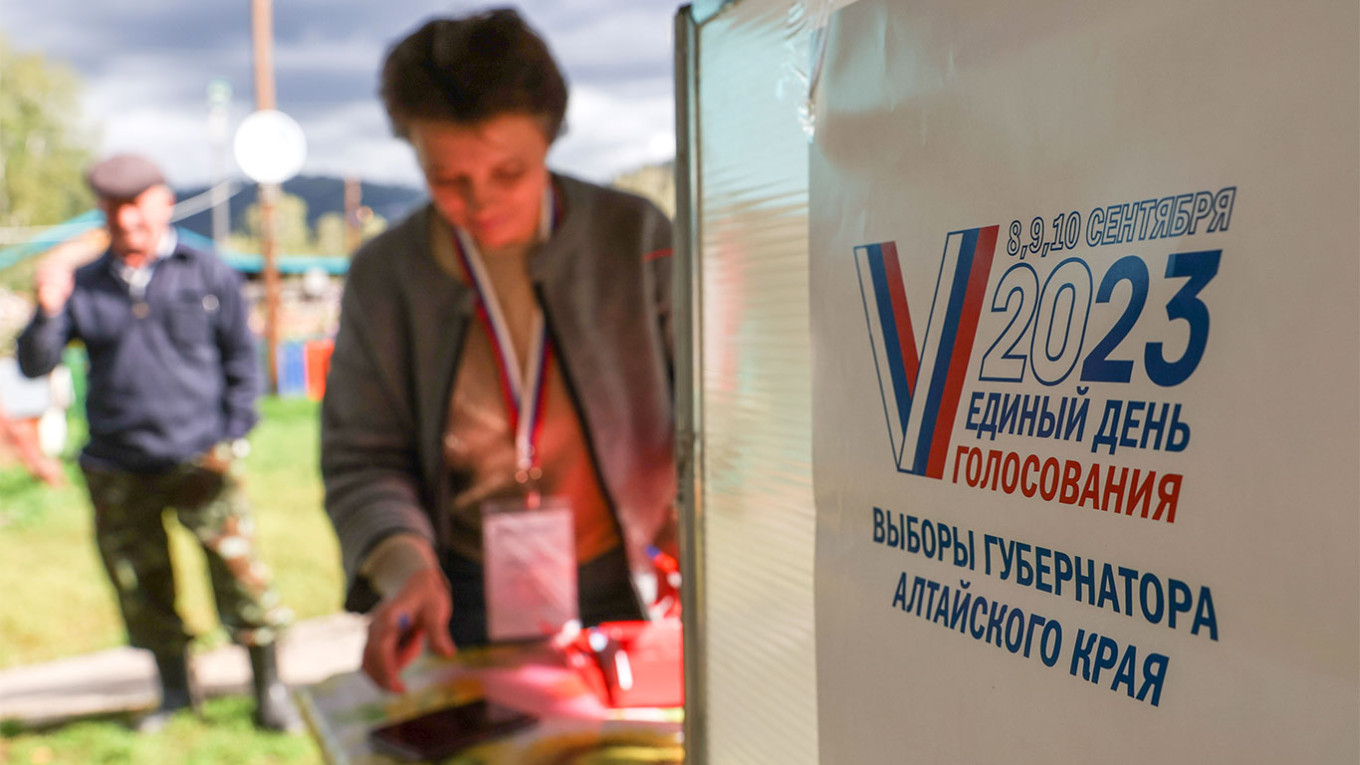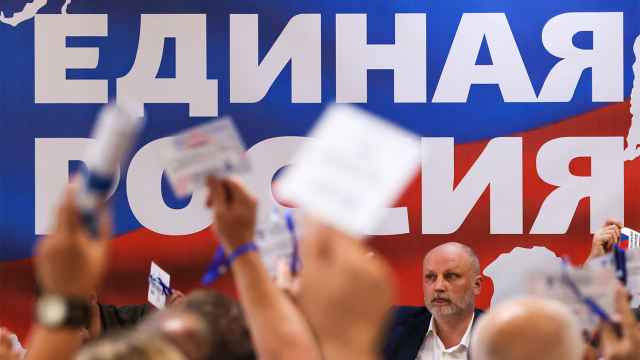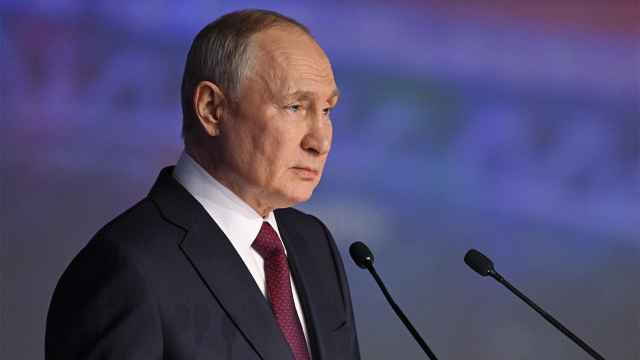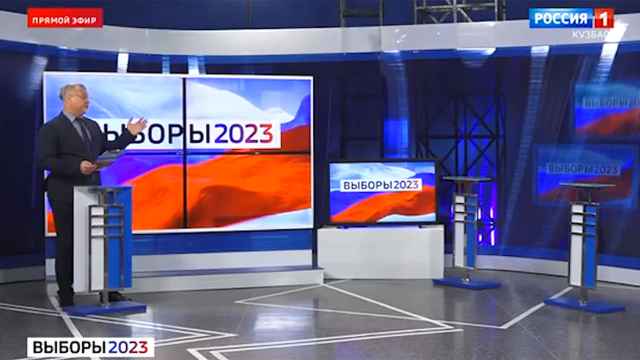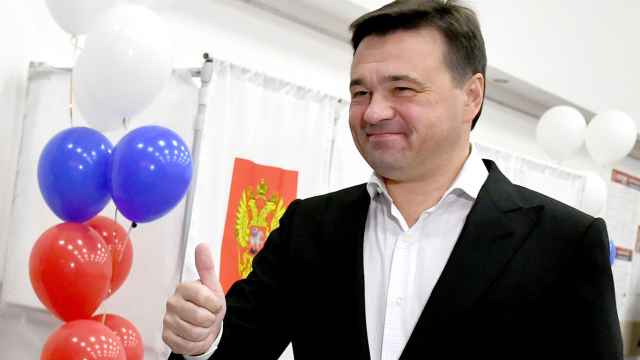On Sept. 8-10, Russia is going to hold regional elections in 49 of its 83 regions — as well as in Crimea and the four Ukrainian regions it occupies — and several municipal votes across the country. In spite of the war, neither in 2022 nor 2023 did the authorities create a legal pretext to cancel elections.
This year, this is partly out of a desire to show force. Elections in the occupied regions of Ukraine will likely be falsified as the 2022 referenda to annex them were, with the purpose of demonstrating that Russia unequivocally rules these territories. But domestically, there is a genuine worry that the votes could undermine the Kremlin’s narrative of stability. So why is holding these votes important for the Kremlin, and are they at all competitive?
The first obvious comparison is with 2018, the last time that most of the regions holding elections this month last voted. The contrast could not be starker. A wave of discontent over the Kremlin’s pension reforms, falling living standards and in some regions general anti-Moscow mood brought about four surprising electoral upsets for United Russia and gave a boost to electoral movements promoting strategic protest votes country-wide. This year, campaigners are nearly back to square one. Opposition organizations, including Alexei Navalny’s FBK, merely suggest voting for any non-United Russia candidate due to increased repression which has made almost all other forms of resistance impossible.
These electoral upsets – which the authorities punished – convinced the Kremlin to stop experimenting with pluralism in the regions and prompted a series of legislative changes. These were aimed at uprooting grassroots opposition movements, extending the authorities’ control over the electoral process and, in general, strengthening the vertical of power over regions and municipalities.
Old, time-tested methods such as the “municipal filter” allow the authorities to prevent gubernatorial candidates from getting onto the ballot. The vertical control of electoral committees, which can disqualify undesired candidates, was kept and strengthened. New methods such as online voting — initially championed by Moscow and gradually expanded to other regions — were added to the toolbox. While not a magic button to change any electoral outcome, online voting arguably provided another way for the authorities to exert administrative pressure on voters, as public employees were reportedly pressured to register and know little about the system itself.
A package of legislative amendments in May further restricted the access of observers and independent media to the votes. Overtly repressive legislation at a regional level, such as the Primorye region banning independent candidates outright, also emerged. As the independent observers at Golos pointed out, remnants of pluralism have retreated visibly in regional elections. They are increasingly pushed back to the local level — in places where they exist at all.
The second comparison is with the 2022 regional votes. The contrast here is less obvious. If we compare their voting patterns based on the 2021 State Duma elections, the profiles of the regions voting last year and now are not entirely different. In both years, we find elections in regions that showed unusually high support for United Russia, e.g. Bashkortostan and Kemerovo in 2023, and North Ossetia and Saratov in 2022, as well as regions where the party’s support is significantly lower than official countrywide figures (e.g. Yaroslavl, Tomsk or Mari El) This can be due to the dominant position of a systemic opposition party representing local elites, or to grassroots opposition activity, or both.
In 2023, however, intrigues abound as the effects of the protracted war in Ukraine on finances and governance force domestic politics onto new trajectories in some regions. Most of these intrigues concern regional chapters of the Communist Party. In past years, they have become the main collectors of protest votes. Local elites and activists who did not want to join non-systemic structures — and their local campaigns often build on this. They often reflect how the consequences of the war put a strain not just on resources, but also the understandings underpinning the vertical of power.
In the Novosibirsk region, as part of the domestic clampdown on pluralism, Kremlin-appointed Governor Andrei Travnikov upset a power-sharing deal with the Communist mayor of Novosibirsk, local politician Anatoly Lokot. Travnikov’s move to scrap direct mayoral elections – which threatened to replace Lokot with a successor more closely aligned with United Russia – prompted petitions from activists and independent deputies for a referendum on the subject. The local opposition is far from united, and it says a lot about the Kremlin’s increased repression that Lokot is still not running against Travnikov personally. However, the dispute introduced an element of grievance into the campaign.
In the Altai region, the Communists did try to get a leading local politician, Duma deputy Maria Prusakova, onto the gubernatorial ticket. United Russia prevented this using the municipal filter. In the Primorye region, the Communists hinted that they would boycott the elections outright after their representatives were forced out of local electoral committees, as just the latest in the series of repressive acts against the local party chapter by Governor Kozhemyako.
Apart from issues concerning local self-governance, bread-and-butter issues championed by local politicians such as rising utility bills, have also led to protests in several of these regions (such as Altai and Novosibirsk). These issues are relatively easier for the authorities to handle by throwing money at them, but they remain a concern due to their mobilizing potential.
In the republic of Sakha (Yakutia), a relatively pluralistic but economically depressed region, the mere fact that the former Yakutsk Mayor Sardana Avksentiyeva — one of the country’s most widely known former municipal leaders — personally took part in the campaign to help her party, New People, reportedly caused anxiety in the regional government.
What shaped up to be the most interesting and competitive election was the gubernatorial election in Khakasia, where Communist Governor Valentin Konovalov, the last winner from the 2018 upsets still in office, would face off against the Kremlin’s candidate, Sergei Sokol. However, Sokol withdrew from the election days before the vote due to his hospitalization with peritonitis. Since this came after reports that Sokol’s numbers were not looking good, some speculated that the Kremlin was simply trying to avoid an awkward defeat. Sokol, a Duma deputy who participated in the war, was probably the Kremlin’s most high-profile test case for the integration of a “war veteran” into domestic politics. But his veteran credentials seemingly did not help, and may even have harmed his campaign. In recent months, Konovalov tried to rally local elites on his own side by depicting Sokol as an outsider.
The campaign included a series of highly anticipated debates featuring both Sokol and Konovalov, which is unusual among sitting governors. Both candidates “poached” high-level officials from each other’s side. The conflict took over the region’s electoral administration as well: the Communists unsuccessfully tried to disqualify Vladimir Grudinin, a gubernatorial candidate from the “Communists of Russia” party whose name seemed deceptively close to that of Pavel Grudinin, a popular former presidential candidate from the Communist Party. Konovalov’s government opted out of online voting – as did six other regions – which many see as an opaque way to facilitate ballot stuffing in support of the ruling party. However, it could not prevent the region from holding its elections over three days, which has in the past been shown to facilitate rigging and complicate the work of observers. This can still have an impact as voters in Khakasia also elect the regional legislature.
Sokol’s eventual withdrawal notwithstanding, the struggle around “administrative resources,” local elites and electoral tools highlight what is probably the most important reason why these elections matter to the Kremlin. They don’t just legitimize the system, but test how it responds to unstable circumstances.
The vote that really matters to the authorities in Moscow is the 2024 presidential election, which will likely see President Vladimir Putin run for a fifth term. From the Kremlin’s point of view, it should be a ringing endorsement of the war.
It is thus imperative for the local authorities that no loyalty issues emerge. It needs to make sure that the local elite, company bosses and public officials they rely on to administer the votes can be trusted or replaced. This, at a time when the federal government is distracted from domestic politics. The massive restructuring of the wartime economy is also forcing the authorities to sharply reduce expenditures allocated to investment projects, including important infrastructure in Russia’s regions.
For this reason, the September votes will be closely watched for the lessons that they offer. But for the same reason, the system’s fault tolerance has also been lowered.
A Message from The Moscow Times:
Dear readers,
We are facing unprecedented challenges. Russia's Prosecutor General's Office has designated The Moscow Times as an "undesirable" organization, criminalizing our work and putting our staff at risk of prosecution. This follows our earlier unjust labeling as a "foreign agent."
These actions are direct attempts to silence independent journalism in Russia. The authorities claim our work "discredits the decisions of the Russian leadership." We see things differently: we strive to provide accurate, unbiased reporting on Russia.
We, the journalists of The Moscow Times, refuse to be silenced. But to continue our work, we need your help.
Your support, no matter how small, makes a world of difference. If you can, please support us monthly starting from just $2. It's quick to set up, and every contribution makes a significant impact.
By supporting The Moscow Times, you're defending open, independent journalism in the face of repression. Thank you for standing with us.
Remind me later.



